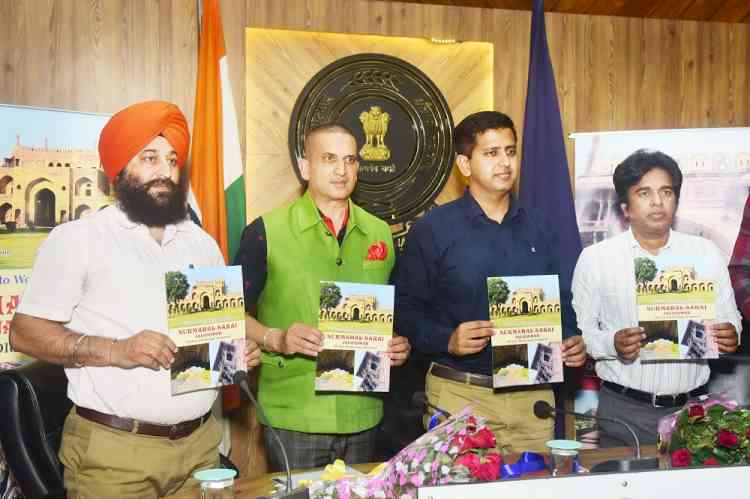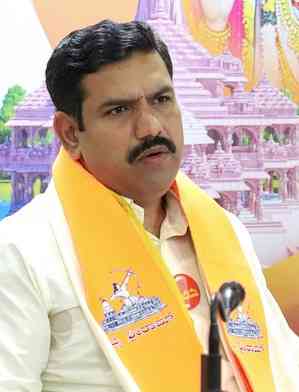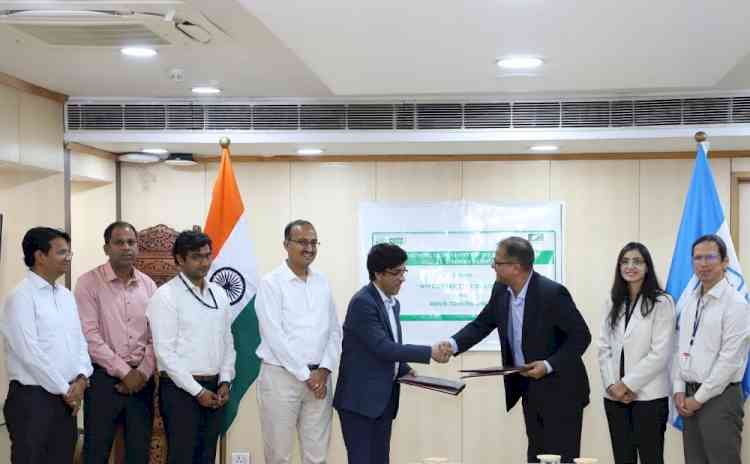Discussion on book, `Spatializing Popular Sufi Shrines in Punjab: Dreams, Memories, Territorialities’

Chandigarh, November 30, 2019: To celebrate PU Global Alumni Meet, 2019, the Department of History, PU, organised a Book Discussion on the book, Spatializing Popular Sufi Shrines in Punjab: Dreams, Memories, Territorialities authored by PU alumnus, Dr.Yogesh Snehi (Assistant Professor, School of Liberal Studies, Dr.Ambedkar University, Delhi) and published by Routledge, London and New York, 2019.
Three eminent Professors of History were invited as the Discussants to participate in the event including Professor Vijaya Ramaswamy, the Tagore Fellow, Institute of Advanced Studies, Shimla, Professor Surinder Singh, Professor and Former Chairperson, Department of History, PU and Professor Mahesh Sharma, Professor of History,DES MDRC, PU, Chandigarh.
The event began with the formal welcome and the introduction of the Guests by Professor Anju Suri, the Chairperson of the Department. Dr. Snehi gave an introduction of the book broadly outlining its theme, major subject of his exploration of the organic lives of popular Sufi Shrines in contemporary North-West India, anthropological, ethnographical methods along with oral traditions adopted for the study and various sources of inspiration drawn by him. He remarked that the research was both a personal and professional voyage to comprehend and document the history of Sufi Shrines post-partition.
Professor Vijaya Ramaswamy praised the author for his emphasis on shrines serving as centres of cultural unifier. She said that the revivalist movements became a factor for fundamentalism. She dwelled on the concept of syncretism related to these shrines and analysed as to how these shrines have carried various ideas among people and crystallised identities. The quest of identity gave birth to the demand and the subsequent movements of regional states.
Professor Surinder Singh in his comments said that he sees a shrine as an autonomous and a complete unit in itself. He appreciated the author for using oral traditions, field work and personal interviews as useful tools for the research and contributing a chapter on visual material. He referred to the pre-colonial cultural fusion gleaned through the prism of shrines and pointed out that the liberating role of the shrines seems to have disappeared.
Professor Mahesh Sharma dwelled on the constructive role of shrines in upholding and encouraging cultural interactions, cultural lineages and cultural identities which contribute towards the formation of 'Hindustani communities'. He referred to the spiritual borrowing of the practices and remarked that Space be understood in context of diaspora through memories, dreams etc. He too applauded the effort of the author to have carried his research on ethnographical sources and oral traditions.
The above discussion was followed by the fruitful interactive session and the audience comprising of faculty and researchers of the allied departments other than History participated with vigour and enthusiasm. The academic event ended with the formal vote of thanks proposed by Prof. Sukhmani Bal Riar of the Department.

 cityairnews
cityairnews 

















